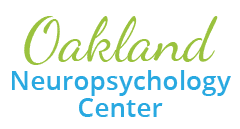Adults with Memory Problems (MCI/Dementia)
Mild Cognitive Impairment (MCI) or Mild Neurocognitive Disorder is a term used to describe cognitive decline in one or more cognitive domains (e.g., attention, processing speed, executive function, memory, language, visuospatial function) without significant interference in daily life or independent living (e.g., taking medications properly, cooking, managing finances). Some individuals with MCI progressively worsen in cognitive and daily functions in the next few years, eventually meeting the diagnostic criteria for dementia. Others remain stable over time or experience some improvement in cognition, depending on the underlying cause for cognitive decline.
Dementia (a.k.a. Major Neurocognitive Disorder) is a general term used to describe cognitive decline that significantly affects one’s daily life or independent living. Under this general term, ‘dementia,’ there are various types, such as Alzheimer’s dementia, vascular dementia, frontotemporal dementia, Lewy body dementia, and mixed dementia.
Neuropsychological evaluation can be helpful in assessing one’s cognitive strengths and weaknesses as well as emotional health and determine whether presenting cognitive decline is due to normal aging, due to emotional disturbance, or due to a condition like MCI or dementia. Based on the diagnosis and the individual’s strengths and weaknesses, appropriate recommendations are provided for the individual and the family. If you have concerns about mild cognitive decline or changes, please talk to your primary care physician and/or call our clinic and make an appointment with Dr. Jin Lee Kim. This will help determine if neuropsychological testing is the next step in helping you address these concerns.


